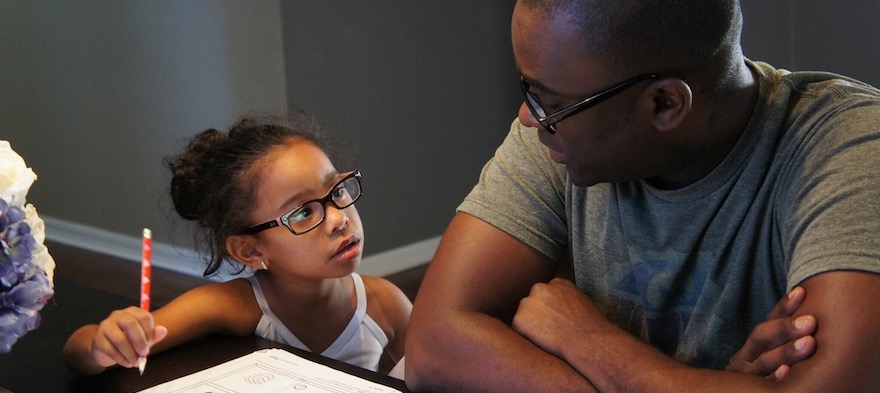
Apr 29, 2019 12:00:00 AM
After attending an informational session for families about autism, Asperger’s and the difficulties of navigating being disabled and supporting your “differently wired” family member (their term, not ours), my husband, my older daughter and I came home to our youngest family member full of sympathy and sadness. We thought we were ready to fully embrace her with unconditional love.
My older daughter immediately picked up her little sister, held her like a baby and said in a baby voice, “Sissy is here for you, baby girl. I will always be here and you are so perfect.”
My 6-year-old responded in a baby voice, echoing her big sis, and said, “Waaa, I want to use your cell phone and can I have some of your candy?”
Big sis, full of sympathy for her “special-needs” sister, gave her some of her hidden stash of candy, from a jar labeled “My Candy. DO NOT TOUCH!”
Our baby girl didn’t stop there.
“Dada,” she said, still in baby talk, “I need to sleep with all my babies tonight.” Because she has about 30 dolls she calls “her babies,” the rule is she can only sleep with five dolls a night. She knows these are the rules. But [pullquote]because my husband was still caught up in “sympathy” for our “special needs” child, he reluctantly allowed her to break the only-five-babies-in-the-bed rule.[/pullquote]
Within an hour, our wily youngest daughter had obtained her sister’s secret candy and a bed full of all her babies, had talked herself into wearing her swimsuit to bed and was quickly on her way to full Dawson Household Domination. She was only stopped by her greed, when she asked her dad to put the Playstation in her bedroom, with a new television, so she could play her favorite Marvel video game whenever she wanted.
We quickly realized that our neurodiverse family member was playing us all. She didn’t know why all of sudden we were treating her differently, as someone who should be pitied and needed special treatment, but she saw an opportunity and seized her moment. She was the same person before we went to the workshop—we were the ones who were different.
Honestly, I can’t remember much of what we learned at that “autism for families workshop,” but I know my daughter taught us the most important lesson. There is nothing to be pitied about my daughter. She is not weak. She is brilliant, perceptive and fully capable of seizing opportunities to reach her goals. Before we went to this family workshop, we already knew all about her strong-willed personality and her get-what-she-wants-ness.
All her life, my neurodiverse daughter has been functioning in our neurotypical world. She has already developed an inner resilience to make sure she is successful. She has overcome more obstacles than almost anyone in our family. And she did it all before she lost her baby teeth.
Ironically, the most important lesson from our “autism family workshop” was that no one could teach us about our younger daughter, but our daughter. Every child, including every child on the autism spectrum, is the best teacher of who they are. Take the lesson my family learned: Don’t pity or underestimate them. Otherwise, you will end up losing your candy, with 30 dolls in the bed and a 6-year-old dictator of bedtime. If you pity children with autism, know you will do it at your own risk.
ShaRhonda Knott-Dawson is the mother of two free-spirited, strong-willed girls and has a husband who should be appointed a saint for co-existing in the madness that is their life. She writes on politics, education, current events and social justice. She is also a taco enthusiast, a proud member of the Bey-hive, and truly believes that she will be receiving her letter from Hogwarts any day now.
Few issues in education spark more tension and debate than standardized testing. Are they a tool for equity or a burden on students? A necessary check on school systems or a flawed measure of...
Charter schools are public schools with a purpose. Operating independently from traditional school districts, they're tuition-free, open to all students, and publicly funded—but with more flexibility...
Despite the benefits of a diverse teaching force, prospective teachers of color fall out of our leaky preparation pipeline at every stage: preparation, hiring, induction, and retention. Here’s what...
Ed Post is the flagship website platform of brightbeam, a 501(c3) network of education activists and influencers demanding a better education and a brighter future for every child.
© 2020-2025 brightbeam. All rights reserved.
Leave a Comment